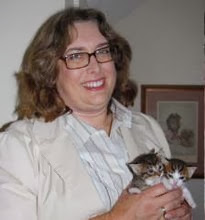This video was created with photos from a clinic at Red Lake in March 2010 and includes an interview with Karen Good the creator and driving force behind Red Lake Rosie's Rescue.
The Animals at Red Lake Rosie's Rescue from JanetRoper on Vimeo.
Red Lake Rosie’s Rescue is an all volunteer, non-profit organization with a board of directors from the Red Lake Indian reservation, and operates a shelter on Red Lake Tribal land leased to Karen Good. Karen grew up in a large family on the reservation, left to get a college degree and returned to teach at the high school.On March 21, 2005, a Red Lake 16-year-old killed his grandfather and his grandfather's girlfriend and then drove to the school where he shot and killed seven people on the school campus, including five students, one teacher and an unarmed security guard. Five others were wounded and the shooting spree ended with the boy committing suicide.
The day of the Red Lake massacre, Karen was driving home in a state of shock and horror. She noticed a skinny dog at the dump scrounging for food. On the spot, she decided she had to take some kind of action to make some kind of positive change. She took that dog home and that act ultimately resulted in the rescue which is named for the dog, Rosie.
Now animals are picked up routinely from the reservation dumps where stray animals go to find food or where their owners have abandoned them. Police, social workers and residents have come to know that the rescue will take the animals that may be suffering from malnutrition, injuries and exposure. Before the rescue, the only option was to shoot them.
Animals taken in by the rescue have been transported to nearly 50 different rescues across Minnesota, Iowa and Wisconsin. Prevention and education are the other main components of Red Lake Rosie’s mission. The rescue organizes several animal care clinics each year with Animal Ark’s Neuter Commuter, the Animal Humane Society’s mobile clinic, vets from Minnesota and Wisconsin and HSUS/RAVs (the Humane Society of the United States Rural Area Veterinarians). Hundreds of spay/neuter surgeries have been performed and animals receive shots and basic medical treatment.
Education of the animal owners about appropriate pet care is also a big part of the clinics and continues with school children. The very basic information about the need to provide shelter, water and food is the starting point and people are provided with buckets for water and food, as needed. Visits with animals are made to elementary classrooms and the last two years the children have saved their pennies to make a donation to the rescue. Some groups of high school students have been able to visit at the rescue or help at the clinics.
Finally, there is a metro support group for Red Lake Rosie’s Rescue that helps in a wide variety of ways. Some volunteers drive north to help at the rescue or a clinic or they transport supplies up and animals down. But, many volunteers help from home by raising funds, creating informational materials, fostering animals. Learn more at www.redlakerosie.org.




